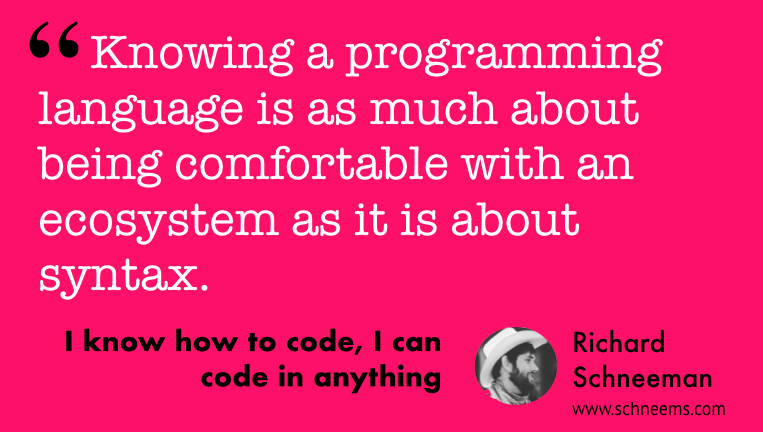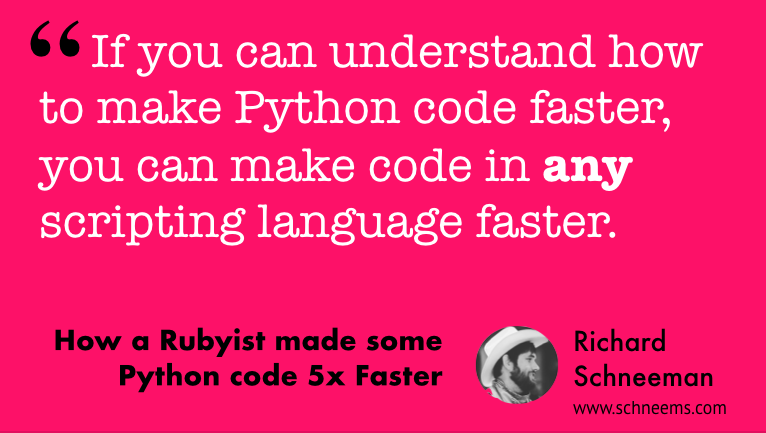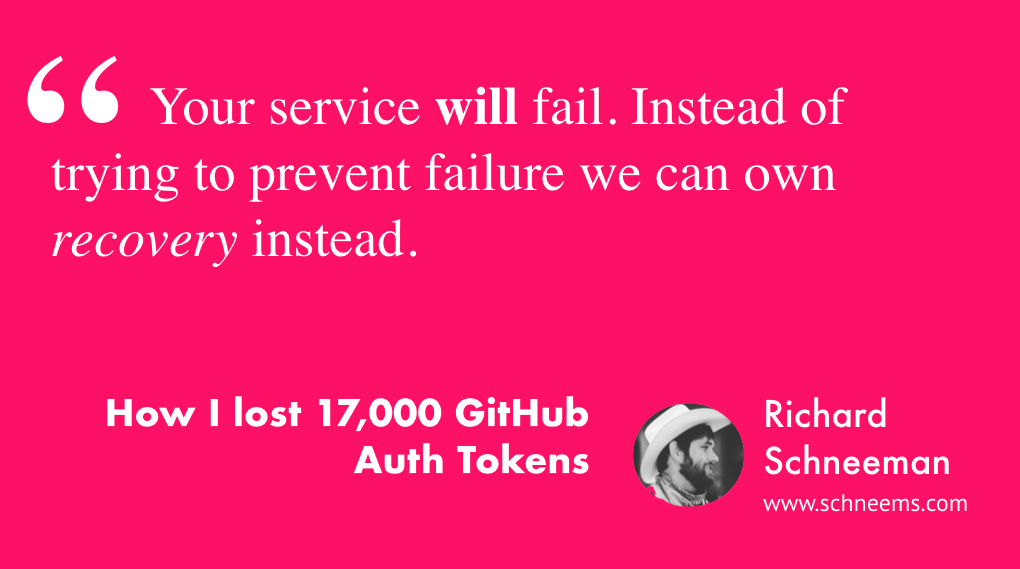23 Oct 2017
What exactly is a thread? Many developers have been exposed to threads and processes over their careers without actually knowing how they work. Knowing more about our tools makes us better developers. To answer “WTF is a Thread”, I took an operating systems course at Georgia Tech and then put my own spin on the information:

Keep Reading
17 Oct 2017
Every time I talk to a recent grad I hear a variation of the phrase “I know how to code, I can code in anything”. This is, on the surface, true for some bits like boolean logic and loops. Where it starts to fail for me is when I need to leverage a language’s ecosystem. I’m a Ruby programmer at heart (for the last 10+ years), yet I’m being forced to write in other languages through my CS Masters classes at Georgia Tech. I know I’m a competent coder, but can I really “code in anything”? How much does skill in one language translate to another?

Keep Reading
02 Oct 2017
I’ve been writing Ruby code for the past 10+ years, and recently due to my masters courses, I’ve been writing a lot of Python. While there are many differences, one area of similarity is their performance characteristics and how code can be optimized. In this post I’m going to look at a bit of Python code I optimized recently, and then compare the process of making this code faster to the process of how I make Ruby code faster.

Keep Reading
27 Sep 2017
This is my third RubyKaigi and my first in Hiroshima. This is also the first time where I’m not speaking (though I am on the waitlist).

Keep Reading
27 Sep 2017
Okay Gaijin you think you’re ready for RubyKaigi? I’m no expert, but I’ve been a few times and I want to share what I wish someone had told me about attending the conference as an outsider.

Keep Reading
13 Sep 2017
This is less a blog post and more of an FYI. This is pretty much verbatim of a snippit I wrote to respond to people asking about the Rubygems vulnerabilities. The TLDR; push to Heroku using any supported Ruby version and you’re safe. If you’re not using a supported Ruby version upgrade your app. The vulnerabilites were fairly low impact, but you should still take steps to protect yourself.

Keep Reading
07 Sep 2017
Do you have a hard name to pronounce? I know I do, and I’m constantly getting asked to say it for people. So much that I decided to add it to my blog. It was pretty easy and I don’t know why I didn’t do it sooner. This is a short post on the why and the how to add an audio clip to your “About” page.

Keep Reading
30 Aug 2017
How on earth does someone accidentally delete 85% of their users’ GitHub tokens? I was suspicious that something might be wrong when I got an email from a service I run called CodeTriage, it’s a free web app to help find open source projects and issues to work on. While I get plenty of emails from my service, I don’t often get ones with the subject line “Code Triage auth failure”. Before we can understand what happened, let’s look into why this email even exists.

Keep Reading
23 Aug 2017
If you use twitter, you’ve likely seen those tweets with the little *promoted* tag on them. Twitter has always been a huge source of traffic to my tech articles, so I wondered if a promoted tweet or two would be just as successful. To find I went down the twitter advertising rabbit hole for the first time. Keep reading to find out how well my promoted tweets performed.

Keep Reading
15 Aug 2017
This is a post about how I had a bug in a background job that ended up sending huge emails to customers. Learn about how I found & debugged the issue, mitigated the problem, and then finally fixed the underlying causes.
Keep Reading









